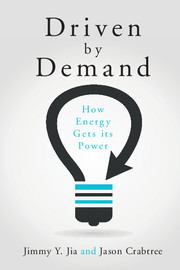1 - You get what you ask for
from Part I - Introduction
Published online by Cambridge University Press: 05 June 2015
Summary
There is nothing either good or bad, but thinking makes it so.
William Shakespeare, HamletEnergy is full of paradox. Depending on the mix of resources used to generate power where you live, driving an “environmentally friendly” electric vehicle can increase carbon emissions relative to an equivalent petroleum-fueled mode of conveyance (Doucette and McCullough, 2011). Even if solar energy were ubiquitous, we would still require coal in the modern economy. Energy efficiency improvements do not reduce overall demand for energy products. Effectively reasoning about energy, despite numerous similar paradoxes and competing factors, is the primary function for this book.
A friend in the coal industry, with experience in pit mining, recently lamented about how much the environmental costs of energy extraction and the residual scarring on the landscape bothered him. At the same time, he quipped that “As long as people keep buying coal, I'll keep digging it up.” People certainly do not keep lumps of coal sitting at home. Yet virtually all of humanity is dependent on coal in some form because of its role in electricity generation and in the process of steel-making.
Making good decisions about energy—despite these kinds of counterintuitive facts—requires context. Our modern society uses vast amounts of energy, even when compared to human civilization only a few generations ago. Our energy infrastructures are oft forgotten but are foundational elements of our society which are completely approachable if explored from the right perspective. Energy consumption is a part of everyday living, but energy issues are mistakenly treated as too complex or arcane to be considered by decision-makers in business or policy. Nothing could be further from the truth.
The networks which feed society's growing thirst for energy developed specific technologies and grew into their particular structure for specific historical reasons. Often, these reasons have more to do with the demand for energy—specifically the way in which we consume energy to do useful work—than with any particular attribute of how we locate, extract, transport, and transform the energy products being consumed.
- Type
- Chapter
- Information
- Driven by DemandHow Energy Gets its Power, pp. 3 - 10Publisher: Cambridge University PressPrint publication year: 2015

